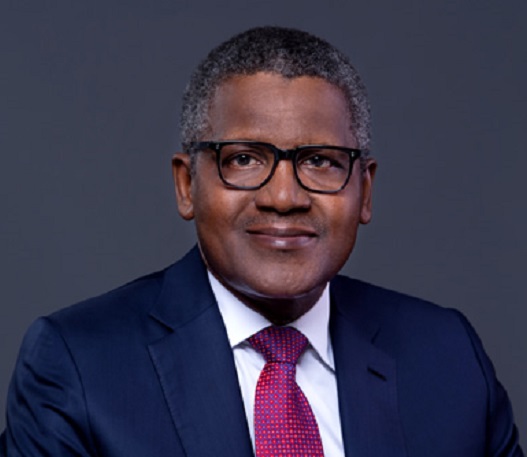The richest man in Africa and founder of the Dangote Group of companies, Alhaji Aliko Dangote, has asserted that the gap between developed and developing countries will continue to widen unless developing countries undertake institutional reforms to alter their economic trajectory.
He emphasized the importance of harnessing modern technology and knowledge in the production process, stating that knowledge is crucial for the transformation of developing economies.
Dangote made these recommendations during a pre-convocation lecture delivered as part of the activities lined up for the 38th convocation of Bayero University, Kano (BUK) over the weekend.
Furthermore, he recommended that Nigeria transition from a resource-based economy to a knowledge-based economy.
According to him, “Given the tremendous benefits that a knowledge economy offers, it is vital that Nigeria makes the transition from a resource-based economy to a knowledge-based economy. Countries like South Korea, India, China, and the Asian tigers, at one time or another, made the decision to institutionalize knowledge economy and are today reaping the benefits.”
Dangote noted that “Ismail Radwan and Giulia Pellegrino in a World Bank publication stated that harnessing knowledge for development is not a new concept as it has always been central to development and can mean the difference between poverty and wealth.
ALSO READ: Benue investment, property company moves digital
“They argued that the knowledge economy is not just about establishing high-tech industries and creating an innovative and entrepreneurial culture. Simply adopting existing technologies widely available in developed countries can dramatically boost productivity and economic growth,” the business Mogul said.
Speaking on his behalf on the occasion, the Group Executive Director of the Dangote conglomerate, Alhaji Mansur Ahmed, Dangote quoted the World Bank as stating that for Nigeria to make the transition to knowledge economy, it must pay attention to the business environment, education & skills, innovation systems and information communication infrastructure.
Nigeria needs a conducive business environment that provides incentives for the efficient use of existing knowledge.
“There are many government research institutions and the existing knowledge gathered over the years can be put into use by firms. Agricultural research institutes have produced new varieties of seeds, legumes and others that are being cultivated in small quantities in their demonstration farms. This is where the government should come in with incentives for firms that would make use of these new varieties,” he said.
He added that “Government, through its agencies, can play a role in ensuring that firms and businesses apply existing knowledge in their operations. The Nigerian government demonstrated this capacity in the auction and licensing of GSM operators. That singular move brought rapid changes to the communications sector and created millions of direct and indirect jobs.
“It also resulted in the transfer of existing technologies to Nigeria, as the winners of the bids brought requisite skills and technologies to build their networks. Nigerian youths who are passionate about new technologies should be encouraged and supported to exploit their natural talents by expanding entrepreneurship facilities and hubs.”
Earlier, in his welcome address, the Vice Chancellor of BUK, Prof. Sagir Abbas, noted that in BUK, Dangote is a trademark that rings a bell, courtesy of the Dangote Business School singlehandedly built and donated to the University by Alhaji Aliko Dangote.
NIGERIAN TRIBUNE
